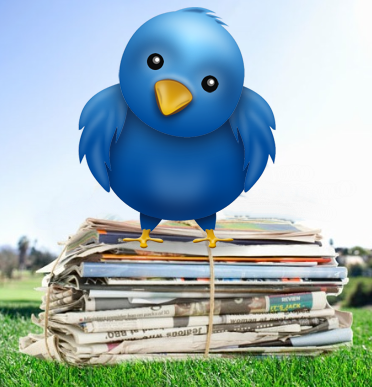He suggested that the services most important social impact is disintermediation - in providing users with an avenue to information, news, and opinion that is not filtered through the dominant media lens.
(W)ith Twitter, people want to know what everyone else thinks and we're getting this inside-out, multi-perspective view of what's going on right now as it happens from everybody else that's watching the same thing we're watching. So I think the major transition for society has been one of from a single point of view in a filtered way to a multi-perspective, inside-out, unfiltered view of what people think of the event.Costolo went on to say that he thought that Twitter was more of a complement to existing media than a substitute or replacement for it. When asked whether he thought people used Twitter more as an echo chamber, Costolo suggested that his hope was that Twitter gave everyone a voice, and gave followers the potential to sample the full spectrum of opinions and perspectives - but it is the followers choice to use Twitter for enlightenment (seeking alternate perspectives) or self-affirmation (seeking support for one's own thoughts).
As for advertising and revenues, Costolo didn't give figures, but did note that "the origin and future of Twitter is mobile," and the mobile advertising market is robust and growing. As for the company's future, Costolo noted that
(Looking) down the road for Twitter, we would like to be a company -- a service -- that is used by billions of people around the world in every country in the world because we feel that the power of Twitter is that it brings people closer to each other, to their governments, to their heroes, etc. So that is absolutely our overriding goal for this service. I think the only thing standing in between that goal and where we are today is our own ability to execute against that vision.Some commentators took his use of the NBC Olympics coverage as an example of the complementarity nature of Twitter to suggest a focus on developing Twitter as a major force in Social TV (through the "Second Screen"). Dave Morgan's take, as outlined in a post on the Online Spin blog, is that the design of the Twitter service, and current usage patterns tied to big news events, shows that a real-time social Web service can add value to an important live news event being passionately followed by millions of citizen journalists and millions more readers, viewers, reviewers and analysts. "It gives me hope yet for the development of the kind of powerful digital Fourth Estate that many folks thought the Internet could support," Morgan quipped.
Morgan rightfully cautions that that such use isn't necessarily the best or dominant aspect of Social TV and/or Second-Screen application - just an interesting and potentially useful one for news and journalism to note and try to take advantage of.
And I, like Morgan and Costolo (with less specificity), see "the intersection between media like television and web services will be ... wide and deep and diverse." "Control" is probably not the best word to describe that relationship.
For more of Costolo's comments, check the interview transcript at the source below.
Source - Twitter CEO Dick Costolo on Jack Dorsey, ad revenue, going public, Marketplace Tech
Twitter Clear Early Leader To Control TV's 'Second Screen', Online Spin


No comments:
Post a Comment